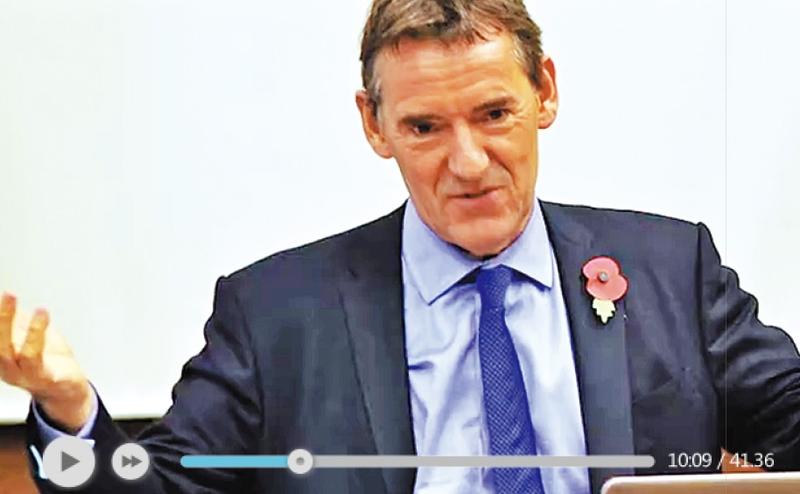
A leading British economist has stressed that China's economic recovery is essential to putting the global economy back on track and cushioning the impact of the crisis, as countries around the world grapple with the coronavirus pandemic.
Jim O'Neill, chair of the international think tank Chatham House and former chairman of Goldman Sachs Asset Management, said getting China back to normal growth is "almost definitely key" for the performance of the world economy.
"For China to recover to something like vaguely normal economic growth will be of tremendous importance and relief for the rest of the world," he said.
O'Neill is known for coining the term BRIC in 2001, to refer to Brazil, Russia, India, and China as four rapidly developing nations that symbolized the shifting balance in the global economy. South Africa was added to the group in 2010, making it BRICS.
China is the world's second-largest economy, with its GDP amounting to nearly US$14.5 trillion last year. Despite domestic growth being at the lowest level in three decades, the speed of China's growth still influences the world, O'Neill said.
"What complicates the matter is China is two to three months ahead of the rest of the world (in tackling the pandemic)," he said. "China is now starting to gear up its economy, just as all our economies have been deliberately shutting down, just as China's was."

He is concerned that many countries will struggle to do what China did in closing down its economy in order to control the virus.
"It is going to test the economic model that the whole of my generation has been brought up on," he said. "It is a colossal mental shock to the way Western Europe and most of the so-called G7 countries live, and we need extremely imaginative and ambitious economic policies very soon to deal with that."
When the coronavirus outbreak first emerged in China, it was assumed to be a localized problem.
But two months later, as China appears to have the virus under control, the rest of the world seems to have "a worrying and equally exceptionally economically challenging situation", he said.
O'Neill, who chaired the United Kingdom's global Review on Antimicrobial Resistance, said "we have so much to learn from China and also some other Asian countries".
While the early stages of the outbreak presented challenges for China, the speed with which it brought it under control, is "exactly what all of us in Western Europe and the United States should be learning from," he said.
On the global impact of the virus, O'Neill said he had never experienced any crisis on such a scale.
"This crisis, I think, is even bigger than the 2008 financial crisis, because it is both the demand shock and supply shock, and its cause has got nothing to do with economics, but to do with health," O'Neill said.
"Therefore, the need to solve it is a lot more complicated and we need urgency, imagination and determination around the world, and if we do not, the recession ... will end up being very severe."
![]()
63, worked for Goldman Sachs from 1997 until 2013, spending most of his time there as chief economist.
He became chair of the think tank Chatham House, based in London, in July 2018. In his role as chair, he has welcomed numerous high-profile speakers, including Zhou Xiaochuan, the former governor of the People's Bank of China.
O'Neill also led an independent Review into Antimicrobial Resistance (AMR) for former UK leader David Cameron from 2014 to 2016. He published a book, Superbugs, An Arms Race Against Bacteria with two of his colleagues from the review team.
wangmingjie@mail.chinadailyuk.com



